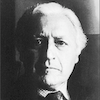In the meantime, in the parallel world of our French comrade Cedric Lebrousse, the Battle of al Qusair continues. The rebels are still fighting, instead, all the civilians are escaping.
http://yallasouriya.files.wordpress.com/2013/06/qusayr-06-06-large.jpg"The battle is not over until the last soldier considers it to be over" is likely his motto. Like the Japanese holdouts in the pacific, fighting valiantly for years after the Empire's surrender, Cedric Lebrousse is that last soldier, continuing the battle for Qusayr probably somewhere from his apartment in Paris.
Could he just be a couple of days late and unaware of the latest developments, after all, just a few days ago the map would have looked much more plausible? Maybe. But for someone who draws maps of that battlefront so frequently (practically every other day) and with THAT level of detail, to be completely unaware of such a major event as the fall of Qusayr, making rounds all over the media for two days straight, is just inexcusable.
Also, I may not be a military strategist but a government offensive in Aleppo right now still seems like a reaaaaaally bad idea, so I sure hope it's just bluff. Unless the SAA suddenly got like 10 new full strength divisions over the past few days, there's no way it would work.
There are several factors which enabled the government to succeed in Qusayr, the same factors are not in place in Aleppo.
First, Qusayr was very close to the Lebanese border, specifically the region of Hermel which is Hezbollah's base, which made it easy for Hezbollah to reinforce and resupply the area. Aleppo is about as far away from Lebanon as it could be.
Second, Qusayr also had a direct and relatively short route for government forces to access and reinforce the city coming in by highway from Damascus or Latakia equally. Aleppo barely has a single land connection with either the coast or Damascus and that is a huge and dangerous desert road. Getting supplies to Aleppo is very very difficult.
Third, Qusayr was flanked by government-held Shia and Christian villages from West and South respectively, and by the city of Homs with its numerous bases in the north, making encirclement relatively easy to achieve. For the rebels to resupply Qusayr was a very difficult and dangerous task, as they'd have to cross through large swaths of government-held territories. Aleppo is almost surrounded by rebels from three sides, the fourth is contested territory. It is also very close to Turkey from which they can easily bring reinforcements or supplies if they need to.
Fourth, Qusayr was a relatively small city which did not require too much manpower to clean or hold, while Aleppo is huge by comparison. There is no way that the SAA could actually have enough manpower to surround or capture a city that big.
My theory is that they're trying to get the rebels to flood back to Aleppo while the real major attack will be in Rastan or Ghouta area maybe.
 < Assad
< Assad
 < Assad
< Assad



























 - By Pants-of-dog
- By Pants-of-dog